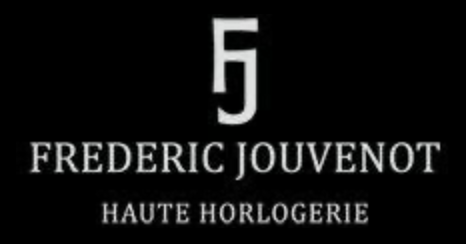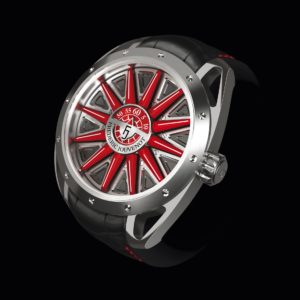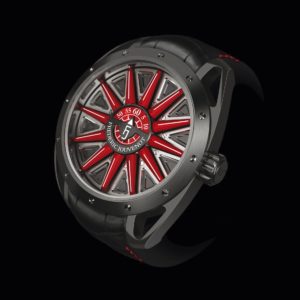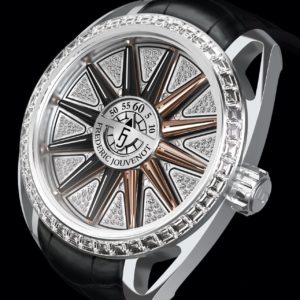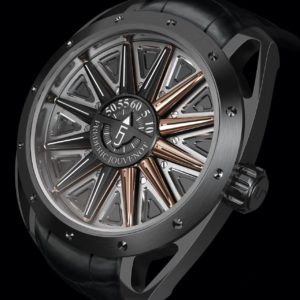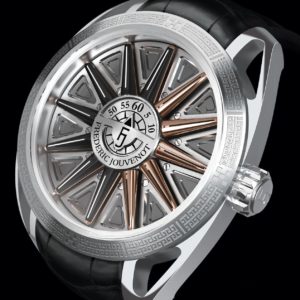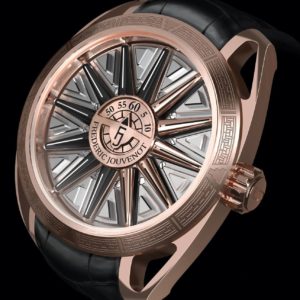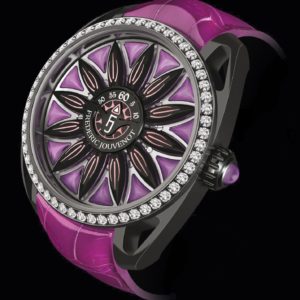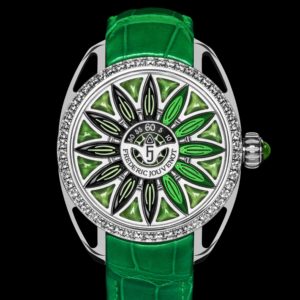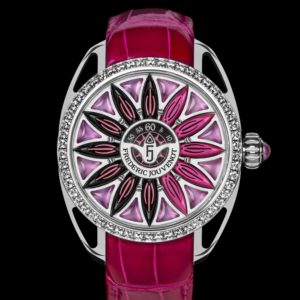HELIOS, INTI, SURYA, AMATERASU
A collection dedicated to the Sun integrating a jumping heliocentric display.
The four masterpieces, each called in reference to various Gods of sun, offers a sun-shaped hour display which is unique. It is the first hour display over 24 hours that shows the sun’s path and the alternation of night and day.
Simple to read yet fitted with a complex mechanism, these timepieces in Frédéric Jouvenot’s Solar Deity collection have two faces, corresponding to the day and night cycles. For the first time in watchmaking history, a timepiece displays the time without conventional hands, numerals or disks.
Each hour is represented by a radio-concentric sunbeam, i.e. starting from the centre and radiating towards the edge of the dial. The twelve sunbeams show the path of the sun on the dial while indicating the hour to come and the past hour.
At mid-day, all the sunbeams are golden to represent daylight. At that precise moment, the dial represents the sun at its zenith. As time passes, the rays become black, one after another, clockwise; the dial darkens and announces oncoming night. Midnight is represented by twelve dark beams reflecting in the night. To symbolise the return to light, the sunbeams take turns to pivot again until mid-day, thus completing a full 24 hour cycle.
Telling the time remains instinctive. Each hour keeps its conventional position and the minutes are indicated by a central cartouche fitted with an index that completes a revolution on the fixed minute disc.The display maintains the conventional angular gap of a watch for instinctive reading.
The whole complication mechanism is enclosed in the central 12 mm diameter and 5 mm high case which contains no fewer than 100 parts, including 24 rubies which will activate the hour’s jumping beams.
Example: at 3.30 p.m., the first three beams are black and the minute indicator points to 6 o’clock, as on a conventional dial. The conventional angular gap between 3 o’clock and 30 minutes is thus maintained.Herein lies the feat accomplished by Frédéric Jouvenot; having maintained conventional reading of the dial with a revolutionary hour display system.
But the designer who has imagined, built in three dimensions and invented this watchmaking complication has also designed the case of his watch in partnership with his supplier. He wanted it to be very comfortable on the wrist, curving the horns as much as possible to follow the natural line of the wrist. He then lightened the design of the case by emptying the horns of the watch, giving it a very contemporary look.
The manual winding movement follows watchmaking tradition comprising a balance with screws, the angled and polished finishing of the bridges in “côtes de Genève”, the angled and polished steel pawl spring with honed finishing.
